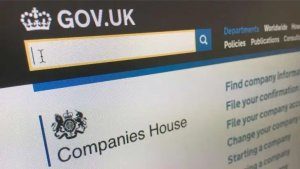- Banking & financial disputes
- Corporate recovery, restructuring & insolvency

Longer Reads
Court rejects Covid-19 related arguments to restrain winding up petitions
The High Court has made it clear that winding up petitions will not be prevented against all companies during the Covid-19 pandemic but only for businesses which come within the proposed scope of the promised legislation designed to protect high street shops from action by landlords to recover rent arrears. With reference to the recent Shorts Garden LLP v London Borough of Camden Council case, Robin Henry looks at the court’s approach.
2 minute read
Published 5 May 2020
Key information
The High Court has dismissed applications to restrain the presentation of winding up petitions for reasons relating to the Covid-19 pandemic. In the case of Shorts Gardens LLP v London Borough of Camden Council [2020] EWHC 1001 (Ch) (27 April 2020), Mr Justice Snowden held that although new legislation to restrict the winding up of companies during the course of the pandemic had not yet been enacted, it seemed clear that it was likely to be limited to certain specified sectors of the economy and to statutory demands and petitions based on claims by landlords for rent arrears. The court also anticipated that the restrictions would only apply where the reason for a company’s inability to pay its debts was due to Covid-19. Where, as in this case, companies did not fall within the relevant economic sectors which were to be granted protection, and where the reason why they had not paid their debts was unrelated to Covid-19, an injunction to prevent the presentation of a winding up petition would not be granted.
Background
The court heard together two similar applications to restrain presentations of winding up petitions. The petitions were brought against Saint Benedict’s Land Trust limited (“SBLT”) and Shorts Gardens LLP (“Shorts Gardens”) by Camden and Preston councils and related to unpaid rates bills and legal costs orders.
Each application sought an injunction on the basis that the debts were genuinely disputed and that it was inappropriate to proceed with winding up petitions until the Covid-19 pandemic had been brought under control. In relation to SBLT, which used premises for the storage of property for homeless individuals, the application to restrain the winding up petition had not been made by SBLT but by one of its director, Christine Harper.
Held
The Judge held that a director of a company did not have sufficient standing to apply for an injunction against the presentation of a winding up petition; Rule 7.24(1) of the Insolvency Rules 2016 provided that such an application could only be made by the company. The Judge was therefore not prepared to grant SBLT an injunction for that reason.
The applicants also relied on the contents of a press statement issued by the government on 23 April 2020 which said that, in order to protect “high street shops and other companies … from aggressive rent collection”, it intended temporarily to ban the use of statutory demands (made between 1 March and 30 June 2020) and winding up petitions presented from 27 April to 30 June 2020, where a company could not pay its bills due to Covid-19. The Judge said he had to make his decision on the basis of the law as it currently stood, but he was prepared to exercise his discretion to whether it was just and equitable to grant an injunction on the basis of the government’s current intentions related to Covid-19.
Although the Judge accepted that the government’s press statement did contain phrases which might, if taken out of context, suggest a wider prohibition than simply claims by landlords for rent arrears, he did not anticipate that the prohibitions were intended to extend to entities such as SBLT and Shorts Gardens, neither of which was a tenant in the retail or hospitality industry.
The Judge also dismissed new evidence adduced by the applicants which purported to show that the reasons for their financial difficulties arose from Covid-19. He noted that although the evidence produced made statements about the economic effect of Covid-19, they did not actually contend that they were unable to pay their debts as a result of the effects of Covid-19, nor did they give any credible evidence to support that conclusion. The majority of the unpaid debts actually predated the impact of Covid-19 and had been previously contested for entirely different reasons. It was therefore clear that the companies’ financial difficulties were longstanding and had not resulted from Covid-19. As a result, the Judge did not accept that the government intended the new legislation to apply to these petitions which were not based upon arrears of rent, but on outstanding court orders and arrears of rates.
In addition, the petition against SBLT had already been presented on 25 March 2020 and therefore it was too late for the proposed future Covid-19 restrictions on the presentation of petitions to apply to it.
The Judge therefore concluded that the reason the applicants had not paid their debts owed nothing to Covid-19 and since they were not the type of entities owing the type of liabilities which the proposed legislation seemed intended to protect, he declined to exercise his discretion to restrain the winding up petitions.
Comment
The case shows that the courts are continuing to try to exercise their discretion to assist companies in financial difficulty owing to the Covid-19 pandemic, even in the absence of formal legislation and on the basis of very limited information provided by the government. However, it also shows that the courts are not willing to bend the rules relating to insolvency in order to assist any company no matter how it comes to find itself in financial difficulties. This judgment shows that the usual legislative process will be applied unless it can be shown that, on the facts, a party will benefit from specific Covid-related legislation.
Related content
Longer Reads
Court rejects Covid-19 related arguments to restrain winding up petitions
The High Court has made it clear that winding up petitions will not be prevented against all companies during the Covid-19 pandemic but only for businesses which come within the proposed scope of the promised legislation designed to protect high street shops from action by landlords to recover rent arrears. With reference to the recent Shorts Garden LLP v London Borough of Camden Council case, Robin Henry looks at the court’s approach.
Published 5 May 2020
Associated sectors / services
Authors
The High Court has dismissed applications to restrain the presentation of winding up petitions for reasons relating to the Covid-19 pandemic. In the case of Shorts Gardens LLP v London Borough of Camden Council [2020] EWHC 1001 (Ch) (27 April 2020), Mr Justice Snowden held that although new legislation to restrict the winding up of companies during the course of the pandemic had not yet been enacted, it seemed clear that it was likely to be limited to certain specified sectors of the economy and to statutory demands and petitions based on claims by landlords for rent arrears. The court also anticipated that the restrictions would only apply where the reason for a company’s inability to pay its debts was due to Covid-19. Where, as in this case, companies did not fall within the relevant economic sectors which were to be granted protection, and where the reason why they had not paid their debts was unrelated to Covid-19, an injunction to prevent the presentation of a winding up petition would not be granted.
Background
The court heard together two similar applications to restrain presentations of winding up petitions. The petitions were brought against Saint Benedict’s Land Trust limited (“SBLT”) and Shorts Gardens LLP (“Shorts Gardens”) by Camden and Preston councils and related to unpaid rates bills and legal costs orders.
Each application sought an injunction on the basis that the debts were genuinely disputed and that it was inappropriate to proceed with winding up petitions until the Covid-19 pandemic had been brought under control. In relation to SBLT, which used premises for the storage of property for homeless individuals, the application to restrain the winding up petition had not been made by SBLT but by one of its director, Christine Harper.
Held
The Judge held that a director of a company did not have sufficient standing to apply for an injunction against the presentation of a winding up petition; Rule 7.24(1) of the Insolvency Rules 2016 provided that such an application could only be made by the company. The Judge was therefore not prepared to grant SBLT an injunction for that reason.
The applicants also relied on the contents of a press statement issued by the government on 23 April 2020 which said that, in order to protect “high street shops and other companies … from aggressive rent collection”, it intended temporarily to ban the use of statutory demands (made between 1 March and 30 June 2020) and winding up petitions presented from 27 April to 30 June 2020, where a company could not pay its bills due to Covid-19. The Judge said he had to make his decision on the basis of the law as it currently stood, but he was prepared to exercise his discretion to whether it was just and equitable to grant an injunction on the basis of the government’s current intentions related to Covid-19.
Although the Judge accepted that the government’s press statement did contain phrases which might, if taken out of context, suggest a wider prohibition than simply claims by landlords for rent arrears, he did not anticipate that the prohibitions were intended to extend to entities such as SBLT and Shorts Gardens, neither of which was a tenant in the retail or hospitality industry.
The Judge also dismissed new evidence adduced by the applicants which purported to show that the reasons for their financial difficulties arose from Covid-19. He noted that although the evidence produced made statements about the economic effect of Covid-19, they did not actually contend that they were unable to pay their debts as a result of the effects of Covid-19, nor did they give any credible evidence to support that conclusion. The majority of the unpaid debts actually predated the impact of Covid-19 and had been previously contested for entirely different reasons. It was therefore clear that the companies’ financial difficulties were longstanding and had not resulted from Covid-19. As a result, the Judge did not accept that the government intended the new legislation to apply to these petitions which were not based upon arrears of rent, but on outstanding court orders and arrears of rates.
In addition, the petition against SBLT had already been presented on 25 March 2020 and therefore it was too late for the proposed future Covid-19 restrictions on the presentation of petitions to apply to it.
The Judge therefore concluded that the reason the applicants had not paid their debts owed nothing to Covid-19 and since they were not the type of entities owing the type of liabilities which the proposed legislation seemed intended to protect, he declined to exercise his discretion to restrain the winding up petitions.
Comment
The case shows that the courts are continuing to try to exercise their discretion to assist companies in financial difficulty owing to the Covid-19 pandemic, even in the absence of formal legislation and on the basis of very limited information provided by the government. However, it also shows that the courts are not willing to bend the rules relating to insolvency in order to assist any company no matter how it comes to find itself in financial difficulties. This judgment shows that the usual legislative process will be applied unless it can be shown that, on the facts, a party will benefit from specific Covid-related legislation.
Associated sectors / services
- Banking & financial disputes
- Corporate recovery, restructuring & insolvency
Authors
Need some more information? Make an enquiry below.
Subscribe
Please add your details and your areas of interest below
Article contributor
Robin
HenryPartner - Head of Dispute Resolution Services
Specialising in Banking & financial disputes, Commercial disputes, Corporate recovery, restructuring & insolvency, Financial regulatory, Financial Services and Personal insolvency
Enjoy reading our articles? why not subscribe to notifications so you’ll never miss one?
Subscribe to our articlesMessage us on WhatsApp (calling not available)
Please note that Collyer Bristow provides this service during office hours for general information and enquiries only and that no legal or other professional advice will be provided over the WhatsApp platform. Please also note that if you choose to use this platform your personal data is likely to be processed outside the UK and EEA, including in the US. Appropriate legal or other professional opinion should be taken before taking or omitting to take any action in respect of any specific problem. Collyer Bristow LLP accepts no liability for any loss or damage which may arise from reliance on information provided. All information will be deleted immediately upon completion of a conversation.
Close










































































